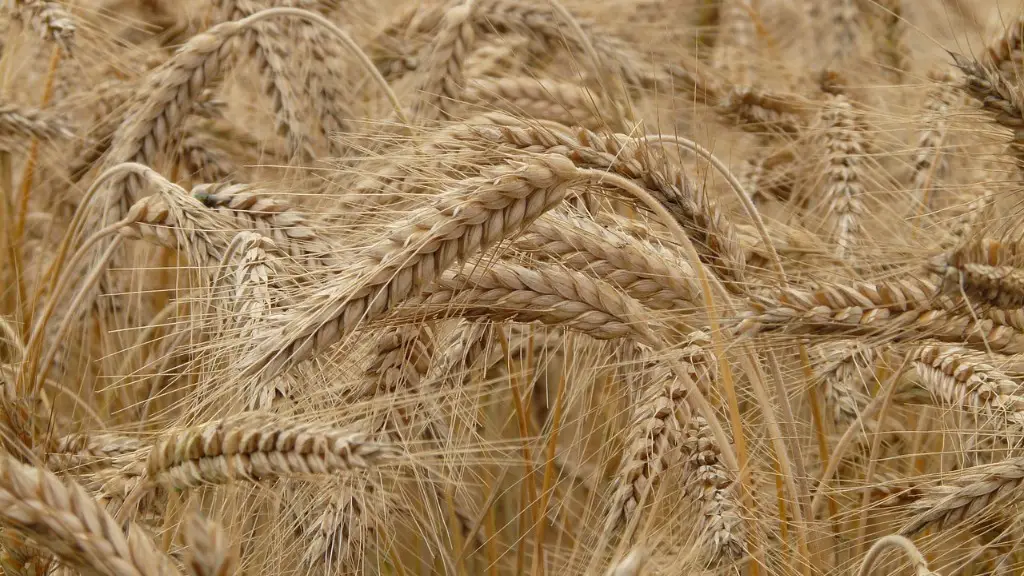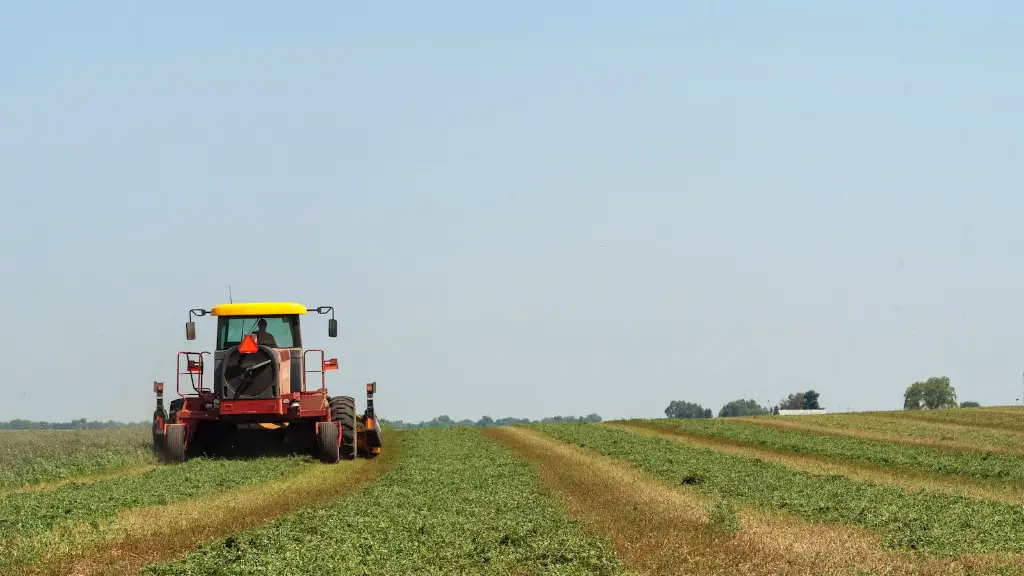The agriculture industry is ever-changing and evolving, which means the skills required to succeed in this field are always changing as well. However, there are a few core skills that are needed in order to succeed in the agriculture industry, no matter what the current trends are. These skills include strong communication abilities, analytical and critical thinking skills, and the ability to work well both independently and as part of a team. With these skills, you will be able to adapt to the ever-changing landscape of the agriculture industry and find success no matter what the current trends are.
Some skills that are needed in agriculture are:
-Being able to operate and maintainfarm equipment
-Having knowledge about animal husbandry
-An understanding of soil science and plant science
-The ability to effectively manage a farm
-Business skills
What are hard skills for agriculture?
The most common hard skill for an agriculture worker is harvest. This skill is important because it allows the worker to bring in the crops that will be used or sold. The second most common hard skill for an agriculture worker is mowing. This skill is important because it helps to keep the area around the crops clear and free of weeds. The third most common hard skill for an agriculture worker is greenhouse. This skill is important because it allows the worker to control the environment in which the plants are grown.
Farmers are some of the most skilled people in the world. They have to be able to problem-solve, be interpersonal, have farm management skills, and be organized. These skills can be used in a variety of ways, from communicating with farmhands to tending crops and repairing machinery.
What skills do you learn from working on a farm
There are many life skills that can be learned on the family farm. One important life skill is a strong work ethic. Chores need to be done on a farm, no matter what the weather is like. This requires diligence and perseverance. Another important life skill that can be learned on the farm is teamwork. When there is a big task to be done, everyone needs to pitch in and help. This requires communication and cooperation. Time management is another important life skill that can be learned on the farm. There are often many tasks that need to be completed in a day, so learning how to manage one’s time is essential. Finally, problem-solving is an important life skill that can be learned on the farm. There are often many challenges that need to be overcome, so learning how to problem-solve is essential.
Working in the agriculture industry, you need to be able to identify and solve problems quickly and effectively. This includes the ability to assess complex problems when they arise, analyze data, and think creatively to find appropriate solutions.
You also need to have strong communication and interpersonal skills in order to work effectively with others in the industry. It is important to be able to build relationships and trust with those you work with, as well as to be able to negotiate and resolve conflict.
Finally, it is also important to be knowledgeable about the latest trends and developments in the agriculture industry in order to be able to make informed decisions about the best course of action for your business.
What are the five skills in agriculture?
The ability to adapt is essential for any professional in agriculture. Being able to transfer your skills from one place or industry to another will help you continue to be successful. Interpersonal skills are also important, as you will be working with a variety of people. Time management and organisation skills are essential, as you will need to be able to juggle a variety of tasks. Being tech-savvy is also important, as you will need to be able to use a variety of tools and technologies.
Skilled agricultural, forestry and fishery workers usually perform tasks such as preparing the soil, sowing, planting, spraying, fertilizing and harvesting field crops, growing fruit and other tree and shrub crops, growing garden vegetables and horticultural products, gathering wild fruits and plants, and breeding.
What are three important qualities that farmers need?
If you want to be a successful farmer, you need to be patient, have a student mentality, be knowledgeable, be a problem solver, be organized, be good with numbers, and be a salesman.
Fieldwork practice is an important aspect of many different jobs and careers. Certain skills are required for effective fieldwork practice, which include observation, communication, interviewing, problem solving, documentation, and more. The skill to work both individually and as a member of a team is important during fieldwork practice.
Observation skills are important in order to be able to take note of important details, both big and small. Communication skills are important in order to be able to speak to clients and colleagues, as well as to write clear and concise reports. Interviewing skills are important in order to be able to gather information from clients and other sources. Problem solving skills are important in order to be able to find creative solutions to challenges that arise during fieldwork practice. Documentation skills are important in order to be able to keep accurate records of observations, interviews, and other data.
Working as part of a team is often essential during fieldwork practice, in order to be able to pool resources and knowledge. However, it is also important to be able to work independently, as there may be times when team members are unavailable or there is a need to work on a task alone.
Overall, having a mix of different skills is important for effective fieldwork practice.
What are the 7 essential soft skills
In order to be successful in any field, it is essential to have a strong foundation in soft skills. Especially in today’s job market, employers are increasingly looking for candidates with not only the hard skills required for the job, but also the soft skills that are essential for collaboration, communication, and problem solving.
Some of the most important soft skills in demand include teamwork, communication, adaptability, critical thinking, and time management. Having these skills can help you succeed in any job, no matter the industry.
Teamwork is essential in any job because it allows for greater productivity and creativity. Working together with a team also helps meet deadlines and achieve goals. Good communication is another important soft skill because it allows for better collaboration and understanding among team members.
Adaptability is important in any job because it allows you to be flexible and responsive to change. Being able to adapt to new situations quickly is a valuable skill in any workplace. Critical thinking is another soft skill that is essential for solving problems and making decisions. Time management is also important in any job because it allows you to be efficient and organized.
Interpersonal skills are also essential in any job. These skills allow you to interact with others effectively and build strong relationships. Having strong interpersonal
The eight essential skills are essential because they cover communication, creative problem solving, self-management, and interpersonal skills. Listening, speaking, problem-solving, creativity, staying positive, aiming high, leadership, and teamwork are all important skills to have in order to be successful in any career. Listening and speaking are important for communication, problem-solving is important for creative thinking, staying positive and aiming high are important for self-management, and leadership and teamwork are important for interpersonal skills.
What are the 6 major skills?
Problem-solving skills are the ability to identify and solve problems in a creative and effective way. The ability to work in a team is the ability to collaborate with others to accomplish a common goal. A strong work ethic is the ability to be disciplined and work hard. Analytical and quantitative skills are the ability to analyze data and make sound decisions. Communication skills are the ability to effectively communicate with others. Leadership qualities are the ability to inspire and motivate others.
There are many good reasons for testing all four skills. Firstly, it can help to identify the areas in which a learner needs most improvement. Secondly, it can motivate learners by showing them how much progress they have made. Thirdly, it can provide valuable feedback for teachers. Finally, it can help to foster a love of learning in learners.
Is farming a low skilled job
The work in the agriculture and food processing industries is mostly seasonal, short-term, and low skilled. This requires a flexible workforce that is commonly made up of people working under various forms of casual, temporary, and seasonal contracts. More than half of the workers in these industries come from overseas.
Agricultural workers typically work in fields to plant, inspect, and harvest crops. They may also operate and service farm machinery and tools, apply fertilizer or pesticide solutions to control insects and weeds, and irrigate farm soil.
What is the job responsibility of agriculture?
The responsibilities of a farmer can be divided into two main categories: agricultural production and management tasks. Agricultural production includes activities such as planting, crop maintenance, and harvesting. Management tasks involve overseeing farmworkers, devising strategies for harvesting or breeding, and liaising with clients. Additionally, farmers must also perform manual labor and maintenance tasks on the farm, such as handling heavy machinery and repairing faulty vehicles.
A successful career in agriculture requires a versatile skill set. Communication, organisation, and technological literacy are essential key skills. The ability to effectively communicate with those you work with, whether clients or colleagues, is essential. Being able to organise your work and schedule in an efficient way will help you to be successful. Finally, being technology literate is increasingly important in all aspects of agriculture, from production to marketing.
What are 10 qualities of a farm manager
A farm manager needs to have excellent decision-making skills in order to be successful. They also need to be able to communicate well and work with people. They should also have leadership skills and be able to administer key equipment practices.
The highest paying jobs in agriculture are typically those that require the most training and education. Agricultural engineers, for example, design machines and equipment to be used on farms. Agronomists are agricultural scientists who study crop production and soil management. Veterinarians provide medical care to animals, while winemakers oversee the production of wine. Farm managers are responsible for the overall operation of a farm, while agricultural sales representatives sell farm products.
Final Words
Some of the skills that are needed in agriculture include:
-farming
-planting
-harvesting
-irrigation
-soil management
-pest control
– crop rotation
There are many different skills needed in agriculture, depending on the specific job. However, some skills that are needed across different jobs in agriculture include: being able to operate and maintain equipment, being able to drive a tractor, being able to work long hours, being physically strong, and being able to work in all types of weather.





